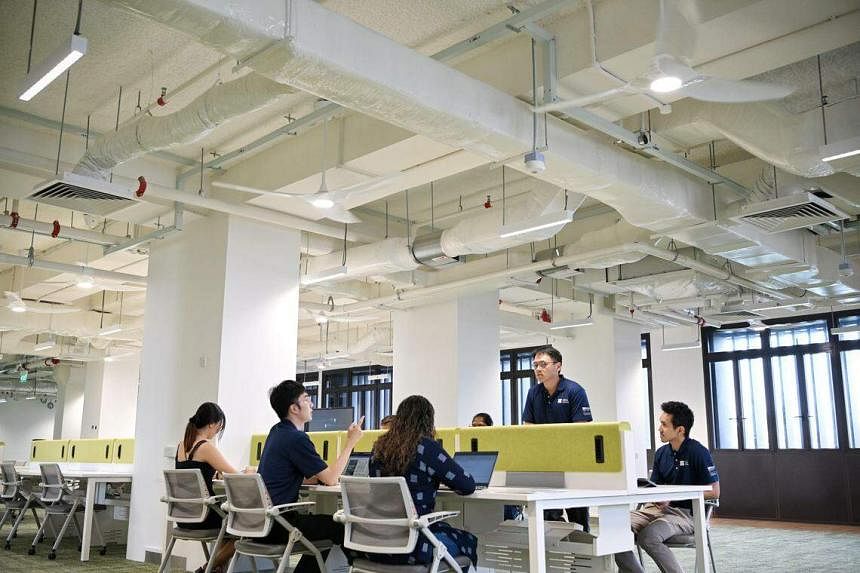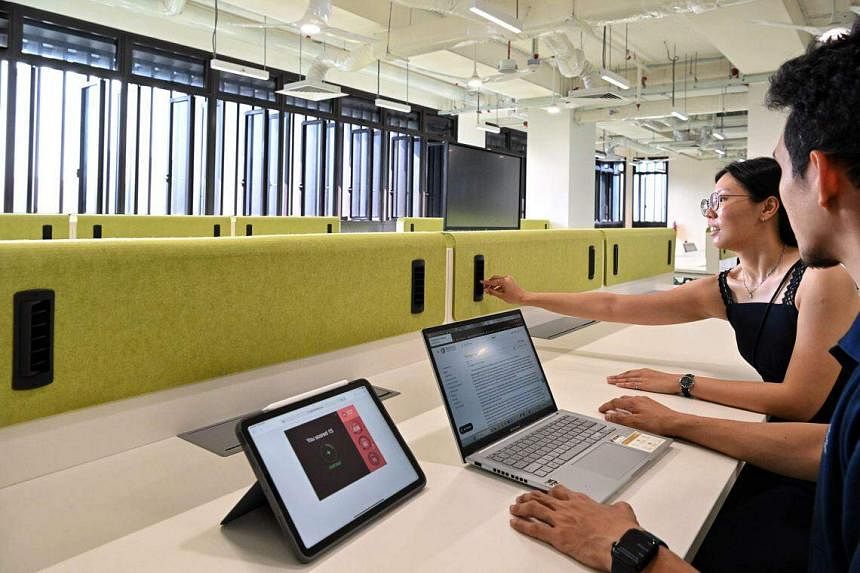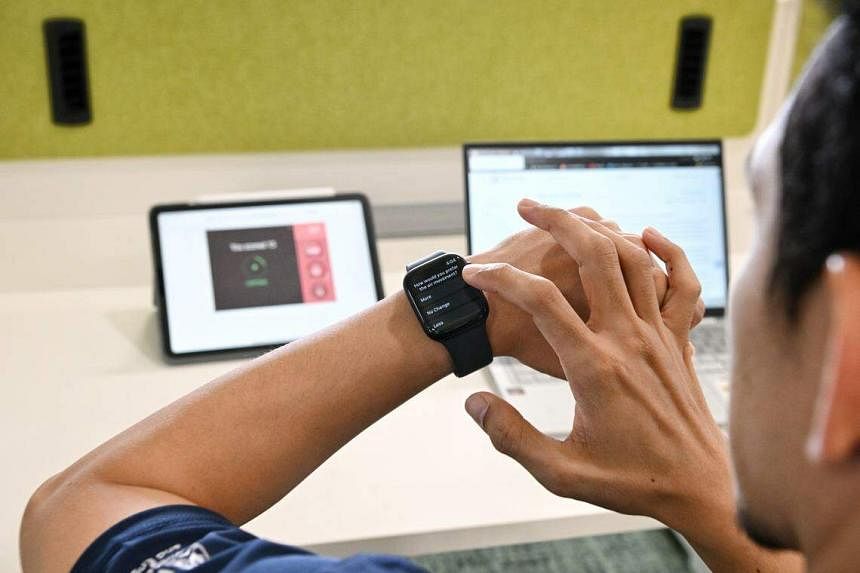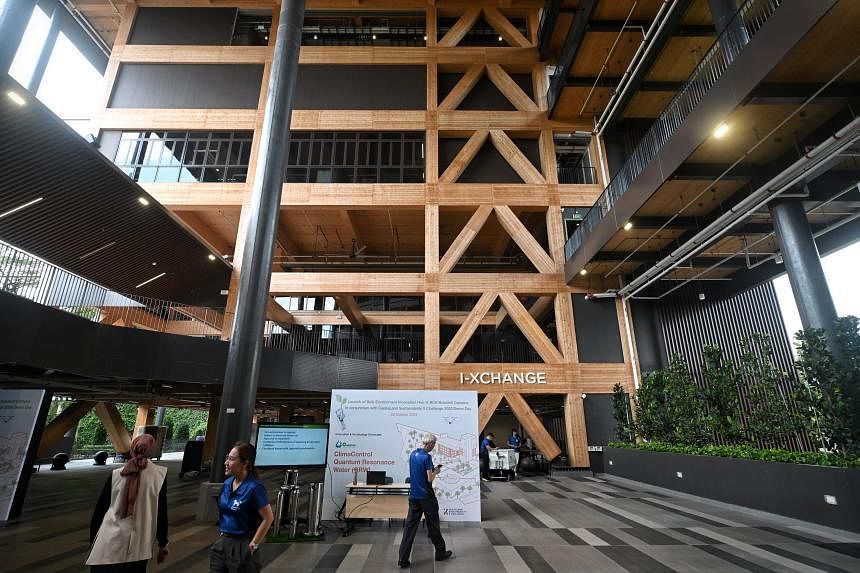SINGAPORE - Mid-career workers looking to switch to the built environment sector can gain the necessary skills through five new SkillsFuture career transition programmes to be launched by the end of 2023.
The programmes are suitable for both mid-career workers without prior experience in the built environment sector, and individuals with relevant experience who are looking to change to new job roles.
Announced at the launch of the Built Environment Innovation Hub housed in the Building and Construction Authority (BCA) Braddell Campus on Thursday, these part-time programmes span nine to 12 months and cover areas such as digital delivery, sustainable design and computational design.
They will comprise both classroom learning – taught mainly in the evenings and using technology-enabled learning platforms – and workplace attachments.
Eligible individuals can receive funding covering up to 90 per cent of the SkillsFuture course fees, and use their SkillsFuture credits to offset the remaining amount.
Speaking at the launch of the new hub, Second Minister for National Development Indranee Rajah said the facility will seek to connect people, showcase innovative technologies and facilitate learning to accelerate the transformation of the sector.
Serving as a living lab for research collaborators and firms, the hub also houses the test bed of an innovative cooling solution developed by collaborators from BCA, the National University of Singapore (NUS), Singapore Institute of Technology, Kajima Corp and Surbana Jurong.

Through an incremental cooling approach, the amount of energy required to cool an office space will be reduced by 55 per cent, according to results from its proof-of-concept stage, as it maximises the use of natural ventilation and ceiling fans.
Different cooling modes will be switched on at various temperature thresholds.
First, if temperatures remain below 29 deg C, natural ventilation with air from open windows and ceiling fans will be activated.
Second, once temperatures go above 29 deg C, desk spot cooling, using personalised vents located at the sides of office tables to blow air towards occupants’ seats, will be switched on. The table vents transmitting outdoor air are switched on together with the natural ventilation methods from the first mode.

Third, when temperatures reach 31 deg C, air-conditioning will be turned on, at the same time as the other cooling methods in the first and second mode.
Eventually, the system will include the use of a comprehensive network of sensors which provide real-time monitoring of indoor air quality, outdoor weather conditions and the number of occupants, among others, to optimise the choice of cooling modes.
NUS’ Assistant Professor Adrian Chong, who is working on this project, said that he does not use air-conditioning at home.
“It’s cool enough for most of us when we use ceiling fans at home. But somehow, when we move to work in the offices, we become conditioned to using very cold air-conditioning,” he said.
Prof Chong and his team developed the cooling system to save energy while providing a comfortable and healthy indoor working environment.
They will test it in 2024 at the office of built environment software company Azendian Solutions, which is on the 14th floor of the hub, and gather feedback from its employees.

Azendian’s employees can give feedback on their comfort levels through an app on their smartwatches, mobile phones or tablets.
On Thursday, Ms Indranee also announced the launch of a new cycle of the Built Environment Accelerate-to-Market Programme, an initiative to fast-track innovative solutions by firms to commercialisation, to begin in the first quarter of 2024. More details will be shared soon, according to BCA.
The fifth cycle will have a new enhancement, offering more assistance to firms testing new solutions through small-scale commercial trials before they venture into the wider market.

